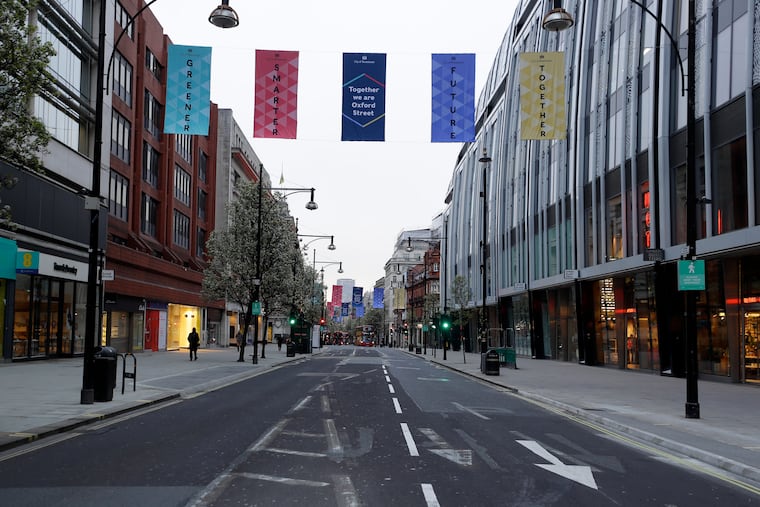Living through the pandemic changed my mind on forced ‘positive’ thinking | Opinion
Why was I trying to convince people — and most importantly, myself — that everything was fine when it really wasn’t?

When I left Philly two summers ago to pursue my Master’s degree in London, I felt some trepidation about how things would work out. Looking back, my worries then seem trivial now — the looming pandemic was never on my radar. Now, as headlines optimistically consider “post-pandemic life,” I still have feelings of trepidation—but for entirely different reasons.
On Jan. 29, 2020, when the first cases of COVID-19 were confirmed in England, I, like so many others, didn’t think much of it. By January 2021 it was all I thought about. The U.K., already on its third wave and third national lockdown, had reached its peak with 68,053 cases on Jan. 8. The mayor of London declared the situation a “major incident” as reports surfaced that roughly one in 20 Londoners in pockets of the city had coronavirus.
At the same time, Philadelphia was lifting some restrictions. The expected rise of cases from the holidays wasn’t as high as initially anticipated, and so restrictions continued to ease. Or so I was told by my friends and family back home. As I talked to them over FaceTime, it felt like we were living on entirely different planets — not in different countries with only a few thousand miles and an ocean separating us.
» READ MORE: There’s a word for the thing we need most right now: Grace | Elizabeth Wellington
Being isolated in my London apartment as I worked on my Master’s thesis wasn’t the experience I imagined when I moved. So I trained myself to think positive thoughts. I used them as a coping mechanism, a way to protect my own ego and avoid admitting that everything around me was falling apart. Sometimes it hit the point of being ridiculous: So what if I couldn’t spend the holidays with my loved ones? At least the grocery store was stocked with multigrain bread this week. A small, but triumphant victory!
I convinced myself that my negative feelings weren’t valid because so many others had it much worse than me. But then I realized: that way of thinking was making me feel even worse.
Why was I trying to convince people — and most importantly, myself — that everything was fine when it really wasn’t? What was I trying to prove?
I was a student, on furlough and a student visa soon expiring, living in a foreign country amidst a global pandemic and recession, and the only thing that brought me even a small spark of joy was the grocery store’s stock of bread. My “positive thinking” wasn’t really helping me unpack any of the worries and fears I had as a result of the pandemic. Forcing optimism about the future just felt like I was lying to myself. Constantly pressuring myself to believe that things were fine, or that things would surely work out in the end, only made me even more exhausted and exasperated—because that was clearly untrue.
Instead of forcing myself to be positive, I decided to accept—not reject—my negative, pessimistic feelings as they came. I cried freely, I grieved for those who lost loved ones, I felt pity for myself, I felt angry at the lack of adequate responses that governments had provided for citizens. And somehow I felt better.
I’ve since completed my studies and returned to the States. I’ve been vaccinated and resumed some pre-pandemic activities like in-store shopping and dining in indoor restaurants. But I still feel trepidation, even despite the many seemingly hopeful signs of a steady return to normalcy. I’m not rushing myself into feeling positive about the promising turn of events just yet—not after a year of trauma. I’m skeptical that we’re in the clear, yes—but more importantly, I’ve learned to accept and appreciate every feeling I experience without dismissing it, even when it’s bad.
While some are eager to return to their pre-COVID lives, without masks and social distancing, some of us are a bit more hesitant—or simply unable—to welcome back our past lives so soon. Both are valid considering the past year.
Being honest with myself and embracing my emotions has been a rewarding, sometimes challenging learning experience for me, especially since I spent so long lying to myself. As life goes on, though, I’m hopeful about accepting my feelings—all of them—no matter what happens.
Emily Savidge is a writer currently based outside of Philadelphia.
Read more stories of changed minds
Want to write about your own change of mind or heart? Tell us at opinion@inquirer.com.